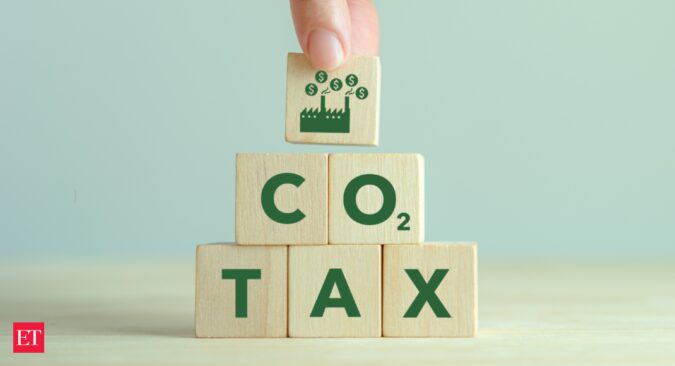The EU is introducing the carbon border adjustment mechanism (CBAM) from October 1 this year. CBAM will translate into a 20-35 per cent tax on select imports into the EU starting January 1, 2026.
The Global Trade Research Initiative (GTRI) in its report said that from October 1, India’s Iron, steel and aluminium exports to European Union countries will face extra scrutiny under the mechanism.
From January 1, 2026, the EU will start collecting the carbon tax on each consignment of steel, aluminium, cement, fertilizer, hydrogen and electricity.
In 2022, India’s 27 per cent exports of iron, steel, and aluminium products of value USD 8.2 billion went to the EU.
“The adverse impact will increase as the EU adds more products to the CBAM list. This will increase costs resulting in the loss of billions of dollars of exports.
“Soon CBAM will include other products, and by 2034, it will cover all products exported to the EU. CBAM will significantly hurt the global trade of developing countries, including India,” it said.It added that cement, fertilizer, and electrical energy are other affected products, but India has negligible exports to the EU in these products.
GTRI co-founder Ajay Srivastva suggested that the government should consider taking steps to deal with the situation.
He recommended setting up a task force to prepare administrative ministries and the industry to meet the CBAM challenge; educating all steel and aluminium firms to meet the October 1 deadline; and setting up the carbon market in India.
He also said that Indian firms should start preparing to minimize the impact of the CBAM.
“The mechanism will affect steel and aluminium firms in the beginning. But from 2034, CBAM tax will be charged on all products entering the EU,” he added.
